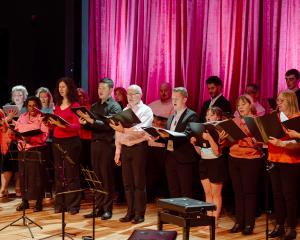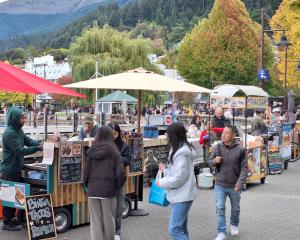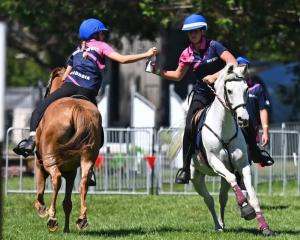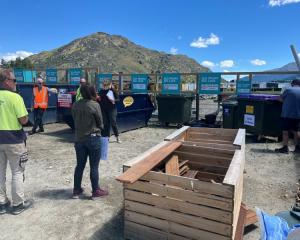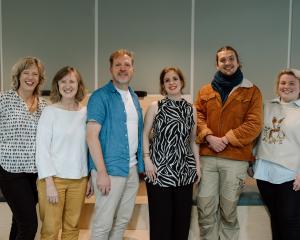
Prue Watson, 48, who splits her time between Auckland and Queenstown, was only diagnosed in September 2022 because her GP advised her to get a routine mammogram due to her age - despite the fact that it wasn’t her year for a free scan.
In New Zealand, women between 45 and 69 are eligible for a free mammogram every two years. But with long wait times for screening and delays in diagnosis and treatment in the years since Covid-19 hit, countless women are falling through the cracks.
Watson, who has no history of breast cancer in her family, said she was "expecting to be absolutely fine because I’m usually pretty healthy".
"I was really shocked. Because I’ve always taken my health for granted a wee bit, and because I am pretty healthy I don’t think too much about these things," she admits.
"I didn’t think that it would be something that would happen to me. I was thinking to myself, ‘How could my body have done something like that without me knowing?’"
After her initial scan, she was called back in for further checks and a biopsy, which revealed she had "quite a large lump" in one breast, despite the fact that she couldn’t feel it. She underwent a partial mastectomy and had her lymph nodes removed to see whether the "quite invasive" cancer had spread.
Thankfully it hadn’t, meaning she wouldn’t need chemotherapy, though she did need radiation therapy after her surgery. As Watson’s cancer is hormonal, she now has to take medication for the next five to 10 years, but is otherwise "pretty much back to health".
"I’m back exercising again and everything like that, which is amazing. I’m really lucky, and there are a lot of people who have been through a lot worse than I have."
Having had no symptoms, Watson wonders where she’d be if her cancer hadn’t been caught so early.
"It was quite early on, but it had already spread, it was quite sizeable. If I’d left it another year, I don’t know what would have happened."
Getting cancer has made her appreciate the people around her a lot more, Watson says.
"I’m really grateful to my partner and to my family, and to my friends who were amazing, and my sister who’s my business partner and was able to pick up a lot of work while I was off sick and having operations and things like that.
"People are like, ‘Oh, I just wish I could do something’. But people don’t realise that just picking up the phone or dropping something around for dinner just makes the world of difference."
Since her diagnosis, Watson has been telling all her friends to get regular checks and wonders whether the age bracket for getting free mammograms should be wider.
"I would just encourage anyone over the age of 40 or anyone experiencing any kind of symptoms to go and have a mammogram. If you are lucky enough to catch it early, the outcomes can be pretty good."
Inspired by her own experience, Watson and her sister Kate Cullwick are running a Pink Ribbon fundraiser for breast cancer awareness in the Hawke’s Bay on May 26, which has since sold out.
"We’re using it as an opportunity to get people together and just talk about what you can do to make a difference."
Breast Cancer Foundation NZ chief executive Ah-Leen Rayner tells the Herald that regular mammograms can mean the difference between life and death - and agrees women should be getting checked earlier.

"That’s why we recommend women should consider paying privately for annual mammograms from age 40 - when your risk of breast cancer begins to increase - until 49, then every two years from 50. As the screening programme is only two-yearly from 45, every other year would need to be self-funded."
However, the cost of private screening will be a barrier for many women. In an earlier release from the Breast Cancer Foundation, Rayner warned against expecting the government to announce funding for more frequent mammograms in today’s Budget, adding that it was "deeply disappointing".
"The current limit of 69 is outdated ... raising the screening age to 74 is the one thing the government could do right now that would have the most impact on saving lives, and cost less than $10 million a year. But in the time since the promise was first made, we estimate that every month, one woman has needlessly lost her life because she couldn’t get the mammogram that would have made her breast cancer treatable."
In the meantime, Rayner says it’s important for women to do regular self-checks and talk to their doctor about any unusual changes.
"Being breast aware is even more important when over 125 Kiwi women are diagnosed with breast cancer between mammograms, known as interval cancers."

